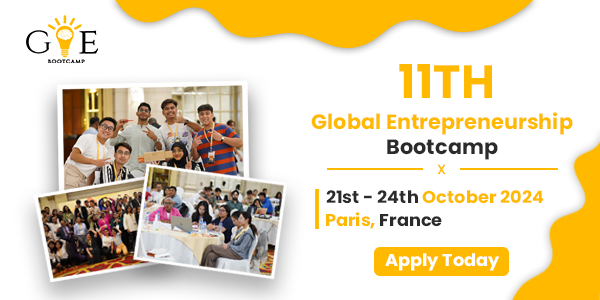
Details
Applications are open for the OWSD-Elsevier Foundation Awards 2023. The Awards reward and encourage women working and living in developing countries who are in the early stages of their scientific careers, having often overcome great challenges to achieve research excellence.
Awardees must have made a demonstrable impact on the research environment, both at a regional and international level, and must have received their PhD in the last ten years.
See More: METI Government of Japan Internship Program 2022
Award Details
The awards program grew out of a one-time award given in 2011 by OWSD, the Elsevier Foundation and TWAS, the World Academy of Sciences, which was given to 11 early career women from developing countries working in STEM subjects. In 2013, the awards program was launched, with the number of awards reduced to 5 per year on a three-year rotation of award categories. The eligible scientific disciplines for each year were organized into general fields: Biological sciences; Engineering, innovation & technology; and Physical sciences.
After ten years of celebrating women in science, in 2021 they have decided to re-focus the awards to respond to the call for action set forth by the United Nations Sustainable Development Goals (SDGs). The number of awards will continue to be 5 per year (one from each OWSD region plus one additional outstanding candidate) for a period of five years (2022 – 2026).
The new awards cycle will follow a five-year rotation, and applications will be open for scientists working to advance knowledge in the following research areas:
- 2022 Awards: Climate action and the environment (SDG13, SDG14 or SDG15)
- 2023 Awards: Food Security, agricultural productivity and sustainable food production (SDG2)
- 2024 Awards: Water, sanitation and hygiene (SDG6)
- 2025 Awards: Inclusive Health (SDG3)
- 2026 Awards: Sustainable, affordable and reliable energy (SDG7)
Prizes from Elsevier Foundation Awards
- Cash prize of USD 5,000.
- All-expenses-paid trip to attend the Awards Ceremony to be held at the annual meeting of the American Association for the Advancement of Science (AAAS) in March 2023. The trip will be confirmed in the coming months depending on the global COVID-19 pandemic situation; it may be that the awards ceremony is celebrated online. Awardees will not be required to travel if they judge the situation to be unsafe.
The 5 awards will be distributed as follows: one for each of the four regions of the developing world (Africa, Arab region, Asia & the Pacific and Latin America & the Caribbean), plus an additional ¨floating” award for an outstanding candidate from any of these regions.
Eligibility for Elsevier Foundation Awards
- The applicant must be a woman who has received her PhD in a scientific discipline within the previous ten years and whose current scientific research is related to the area of climate action and the environment.
- Given that from 2022-2026 the awards will respond to the call for action set forth by the United Nations Sustainable Development Goals (SDGs), applicants must demonstrate how their research contributes to the advance of knowledge in the area of climate action and the environment and to achieving the SDG13 (Climate Action), SDG14 (Life Below Water) and/or SDG15 (Life on Land).
- The application can include, but is not limited to, reference to SDG13, SDG14 or SDG15 sub-targets, e.g.: effective climate change-related planning, protecting marine and coastal ecosystems, halt biodiversity loss, conserve and sustainably use ecosystems, strengthen resilience to climate-related hazards, and more.
Eligible scientific fields:
- Firstly, Agricultural Sciences
- Secondly, Astronomy, Space and Earth Sciences
- Thirdly, Biological Systems and Organisms
- Moreover, Chemical Sciences
- Computing and Information Technology
- Engineering Sciences
- Mathematical Sciences
- Medical and Health Sciences (including Neurosciences)
- Physics
- Structural, Cell and Molecular Biology
Eligible Countries
Applicants must have lived and worked for at least 5 of the last 15 years in one of the following science- and technology-lagging countries (STLCs):
- Africa: Angola, Benin, Burkina Faso, Burundi, Cameroon, Central African Republic, Chad, Comoros, Congo, Côte d’Ivoire, Dem. Rep. Congo, Equatorial Guinea, Eritrea, Ethiopia, Gambia, Ghana, Guinea, Guinea-Bissau, Kenya, Lesotho, Liberia, Madagascar, Malawi, Mali, Mauritania, Mozambique, Niger, Rwanda, Sao Tome and Principe, Senegal, Sierra Leone, Somalia, South Sudan, Swaziland, Tanzania, Togo, Uganda, Zambia, Zimbabwe.
- Arab Region: Djibouti, Palestine (West Bank & Gaza Strip), Sudan, Syrian Arab Republic, Yemen.
- Asia & Pacific: Afghanistan, Bangladesh, Bhutan, Cambodia, Kiribati, Lao People’s Dem. Rep., Mongolia, Myanmar, Nepal, Solomon Islands, Sri Lanka, Tajikistan, Timor-Leste, Tuvalu, Vanuatu.
- Latin America & Caribbean: Bolivia, El Salvador, Guatemala, Haiti, Honduras, Nicaragua, Paraguay.
Preference will be given to those candidates not currently (or within the last three years) in receipt of The World Academy of Sciences (TWAS) or OWSD awards, fellowships or grants.
Application of Elsevier Foundation Awards
Applications must be made online, in English, and must include:
- Firstly, Official documentation proving 5 years’ residency in an eligible STLC .
- Secondly, Evidence on how your research contributes to advancing the SDG2 (Zero Hunger).
- Thirdly, Short biography of approximately 350 words describing your journey to become an outstanding scientist (for ease, we recommend that you prepare this beforehand and copy-paste into the text box)
- Additionally, PhD certificate
- Moreover, Curriculum vitae
- Furthermore, Full list of publications
- At least 2 reference letters (reference letters must be prepared on official letterhead. And should be written and signed by senior scientists familiar with your research).
See More: The AREF-MRC Towards Leadership Programme 2022
Lastly, It is important to visit the official website link found below to access the application form.
Correspondingly, Join us on Telegram for more opportunities!
Similarly, Visit oyaop.com and oyaschool.com for more scholarship opportunities
Specifications
| Type of Opportunity | Competitions and Awards |
|---|---|
| Deadline | 15 September,2022 |
| Country | Africa |
| Open to | All |
| Organizer | OWSD |
| Contact the organizer | [email protected] |
